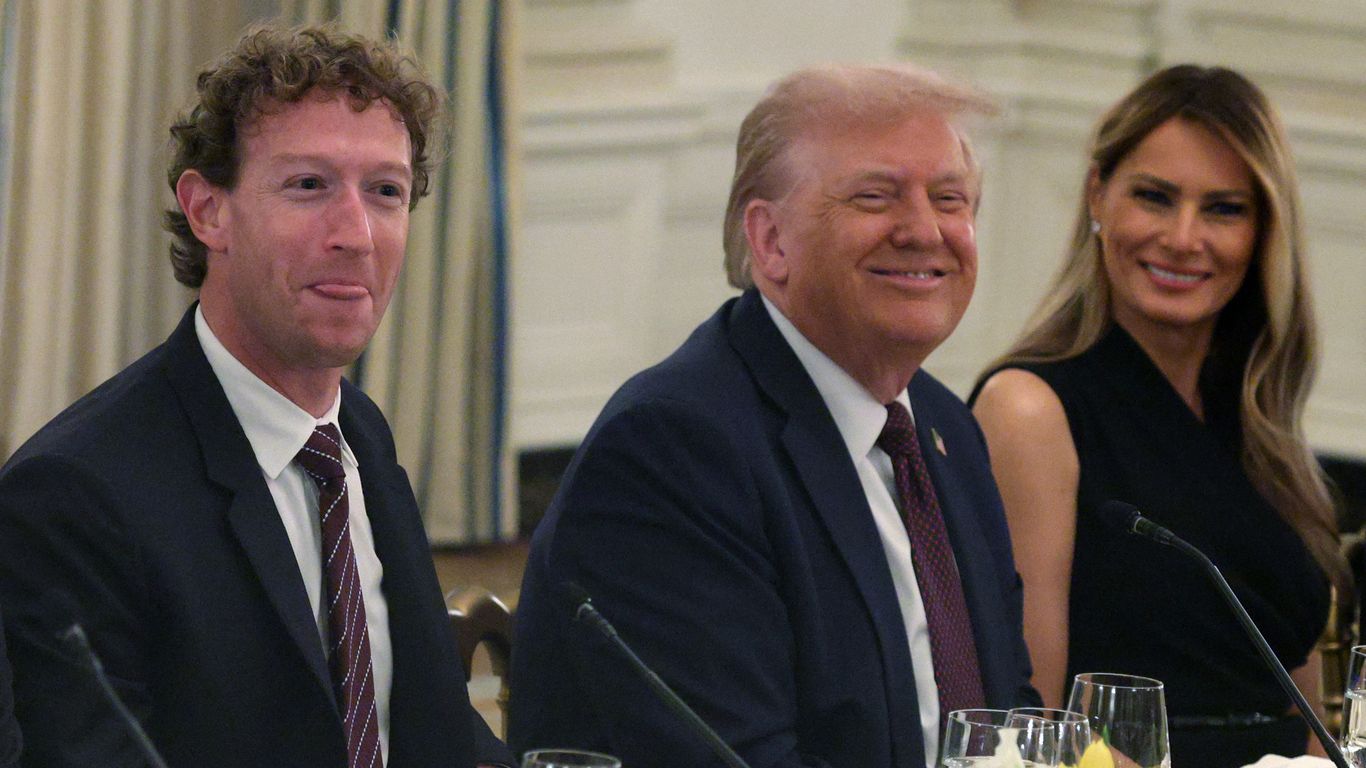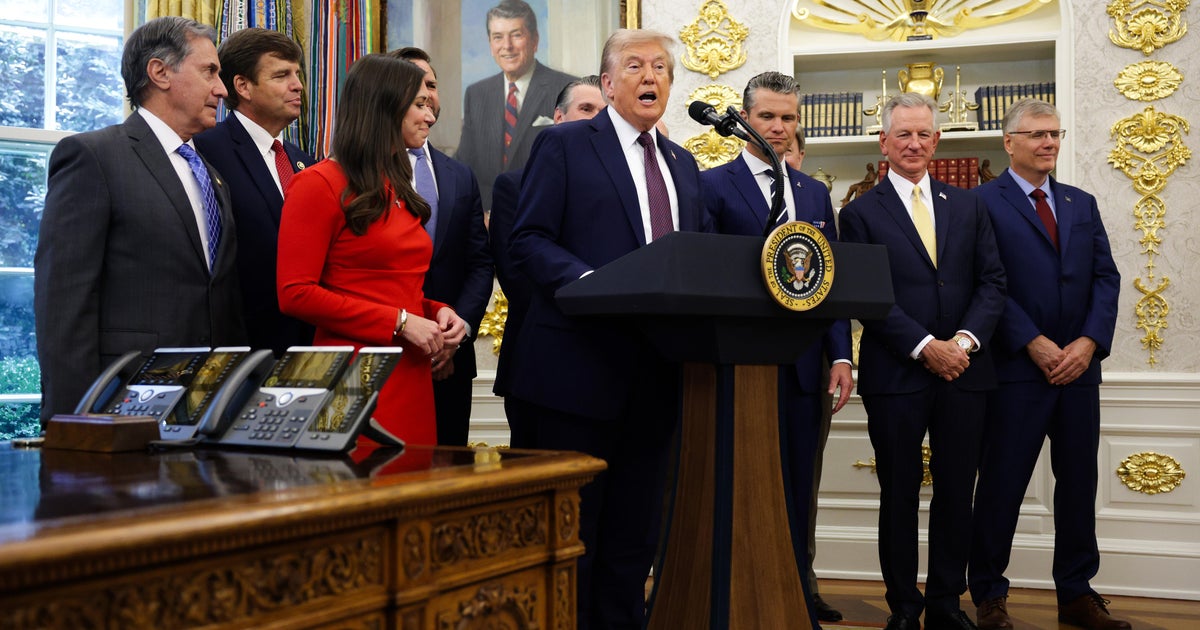Tech Industry's Stance on Trump Administration Shifts

Introduction
The recent dinner at the White House hosted by President Trump has caused quite a stir in the media, as prominent figures like Mark Zuckerberg, Bill Gates, and Sam Altman all praised the President during the event. This is a significant departure from the usual stance of the tech industry, which has been critical of the current administration's policies. However, the absence of former Trump adviser, Elon Musk, raises questions about the relationship between the President and the tech world.
Key Details
The dinner was an opportunity for President Trump to engage with some of the most influential figures in the tech industry. According to sources, the conversation was focused on the role of technology in driving economic growth and creating jobs in the United States. Zuckerberg, Gates, and Altman all expressed optimism about the administration's policies and their potential impact on the industry. However, the absence of Elon Musk, who has been a vocal supporter of the President, has raised speculation about the state of their relationship.
Impact
The dinner has sparked discussions about the relationship between the tech industry and the current administration. While some see it as a sign of support and cooperation, others view it as a shift in the industry's stance. It also raises questions about the future of technology and innovation under the current administration. The absence of Elon Musk, a prominent figure in the industry, only adds to the speculation. As the
About the People Mentioned
Mark Zuckerberg
Mark Zuckerberg is an American businessman and computer programmer, best known as the co-founder, chairman, and chief executive officer of Meta Platforms, Inc. Born on May 14, 1984, in White Plains, New York, Zuckerberg showed an early interest in programming and technology. He enrolled at Harvard University in 2002, where in February 2004 he launched the social networking site thefacebook.com, initially for Harvard students. The site quickly expanded to other universities and, later, to the general public, becoming one of the world’s most widely used social media platforms. Zuckerberg co-founded Facebook with several Harvard classmates, including Eduardo Saverin, Andrew McCollum, Dustin Moskovitz, and Chris Hughes. He dropped out of Harvard in 2004 to focus on the company, moving its operations to Palo Alto, California. Under his leadership, Facebook grew rapidly, reaching hundreds of millions of users and going public in 2012. The company later acquired major platforms such as Instagram and WhatsApp, significantly expanding its global reach and influence. In October 2021, Zuckerberg announced a corporate rebranding, changing Facebook’s parent company name to Meta Platforms to reflect a strategic focus on building the “metaverse,” a vision of interconnected virtual and augmented reality experiences. As Meta’s CEO, he continues to oversee Facebook, Instagram, WhatsApp, and related technologies, including virtual reality products through the Reality Labs division. Zuckerberg has been a central figure in debates over social media, data privacy, and free expression. In recent years, Meta has made changes to its content policies, including scaling back third-party fact-checking programs on Facebook and Instagram in favor of greater emphasis on free expression. As of late 2025, he remains one of the world’s wealthiest individuals and a key player in shaping the future of digital communication and online platforms.
Elon Musk
Elon Reeve Musk, born on June 28, 1971, in Pretoria, South Africa, is a prominent entrepreneur and business magnate known for founding and leading several transformative technology companies. He holds dual citizenship in Canada and the United States and earned bachelor's degrees in physics and economics from the University of Pennsylvania in 1997. Musk began his entrepreneurial career in the 1990s by co-founding Zip2, a software company, and later X.com, which evolved into PayPal, an online payment system acquired by eBay in 2002. In 2002, Musk founded SpaceX, a pioneering aerospace manufacturer and space transport services company, where he serves as CEO and chief engineer. SpaceX is notable for its advancements in reusable rocket technology and commercial spaceflight. In 2004, he joined Tesla Motors as an early investor and took on the roles of CEO and product architect in 2008, driving the company to the forefront of electric vehicle manufacturing. Musk also co-founded Neuralink in 2016, focusing on neurotechnology, and founded The Boring Company in 2017, which develops tunneling and infrastructure projects. In 2015, Musk co-founded OpenAI to promote artificial intelligence research but later left due to differences in vision, subsequently founding xAI. In 2022, he acquired the social media platform Twitter, rebranding it as X in 2023, and has been involved in various business and political activities, including a brief advisory role in the Trump administration's Department of Government Efficiency in early 2025. Musk is recognized as one of the wealthiest individuals globally, with an estimated net worth of $500 billion as of October 2025. His career is marked by significant influence across sectors including space exploration, electric vehicles, AI, social media, and infrastructure development, with ongoing legal and regulatory scrutiny related to his business practices and investments. He is also known for his complex personal life, including fathering 14 children[1][2][3].
About the Organizations Mentioned
White House
The **White House Office** is a central organizational component within the Executive Office of the President of the United States (EOP), tasked with supporting the President in managing day-to-day operations, policy formulation, and political affairs. It is headed by the White House Chief of Staff and staffed by senior aides who report directly to the President, including those with titles such as Assistant to the President and Deputy Assistant to the President. These staff members are mostly political appointees without the need for Senate confirmation, allowing the President considerable discretion in shaping the office to suit each administration's priorities[1]. Historically, the White House Office was established in 1939 through Reorganization Plan 1 and Executive Order 8248 to provide immediate assistance to the President. It functions as the nerve center for presidential staff, physically located primarily in the West Wing, and plays a pivotal role in managing the President’s policy agenda, communications, and political strategy. Its flexible organization allows each President to tailor the staff composition and roles according to their governance style and objectives[1]. In the current context of 2025, the White House Office operates under the administration of President Donald J. Trump, who returned to office after the 2024 election. His administration emphasizes rejecting prior policies deemed extremist and focuses on enhancing quality of life, economic growth, and American energy dominance. The administration includes Vice President JD Vance and First Lady Melania Trump, among others, with a Cabinet advising on various governmental functions[4][6]. Recent initiatives linked to the White House’s operational sphere include the establishment of a new **Department of Government Efficiency (DOGE)** aimed at modernizing federal technology and software to boost government productivity. The DOGE agenda is implemented through the renamed United States DOGE Service within the Executive Office, reflecting a concerted push to leverage technology for administrative modernization[5]. Notably, the White House Office also coordinates national security and homeland security functions through the National Security Council staff, underscoring its central role















